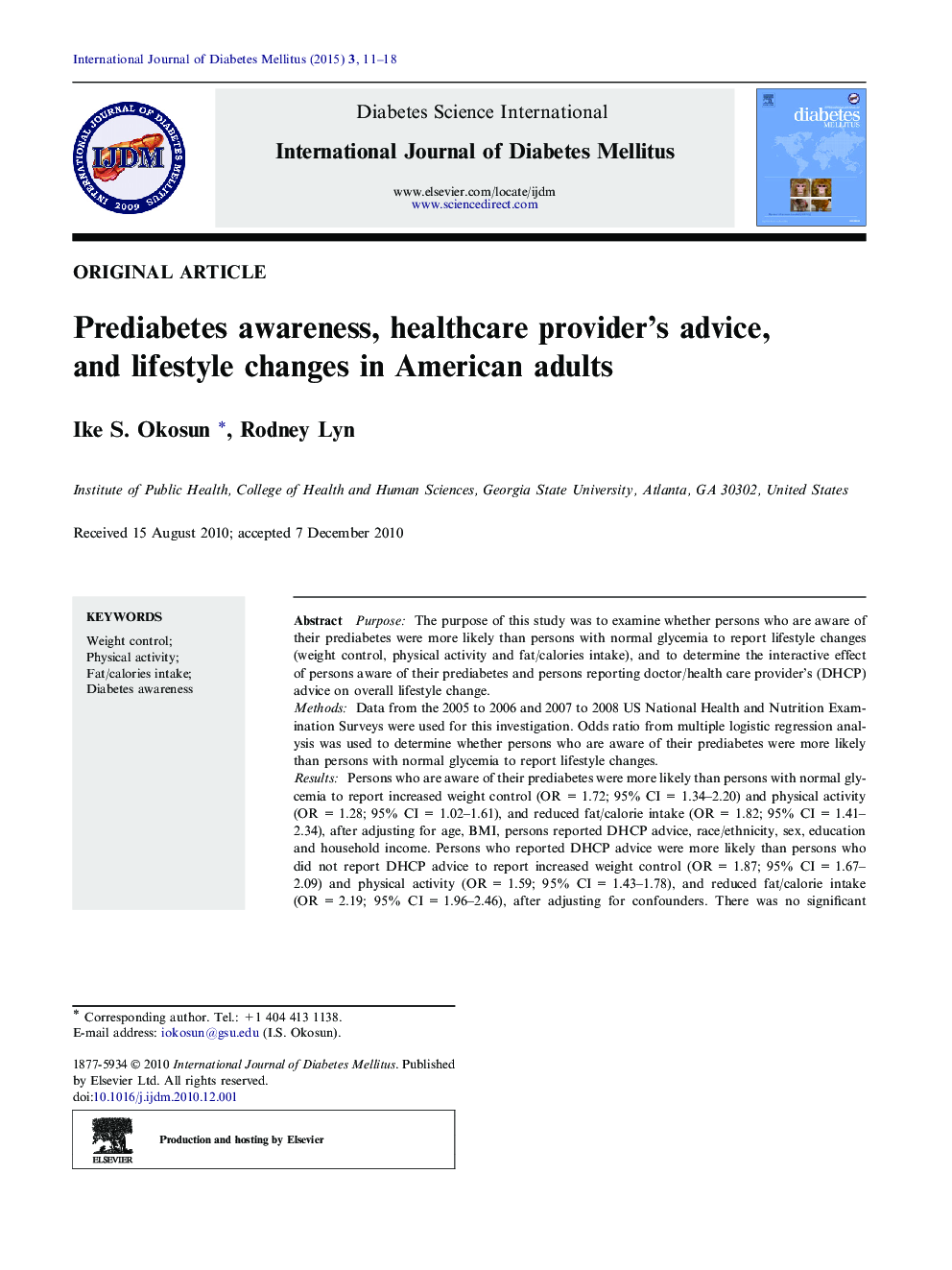| Article ID | Journal | Published Year | Pages | File Type |
|---|---|---|---|---|
| 3270389 | International Journal of Diabetes Mellitus | 2015 | 8 Pages |
PurposeThe purpose of this study was to examine whether persons who are aware of their prediabetes were more likely than persons with normal glycemia to report lifestyle changes (weight control, physical activity and fat/calories intake), and to determine the interactive effect of persons aware of their prediabetes and persons reporting doctor/health care provider’s (DHCP) advice on overall lifestyle change.MethodsData from the 2005 to 2006 and 2007 to 2008 US National Health and Nutrition Examination Surveys were used for this investigation. Odds ratio from multiple logistic regression analysis was used to determine whether persons who are aware of their prediabetes were more likely than persons with normal glycemia to report lifestyle changes.ResultsPersons who are aware of their prediabetes were more likely than persons with normal glycemia to report increased weight control (OR = 1.72; 95% CI = 1.34–2.20) and physical activity (OR = 1.28; 95% CI = 1.02–1.61), and reduced fat/calorie intake (OR = 1.82; 95% CI = 1.41–2.34), after adjusting for age, BMI, persons reported DHCP advice, race/ethnicity, sex, education and household income. Persons who reported DHCP advice were more likely than persons who did not report DHCP advice to report increased weight control (OR = 1.87; 95% CI = 1.67–2.09) and physical activity (OR = 1.59; 95% CI = 1.43–1.78), and reduced fat/calorie intake (OR = 2.19; 95% CI = 1.96–2.46), after adjusting for confounders. There was no significant interaction between persons aware of their prediabetes and persons that reported DHCP advice with reported overall lifestyle change.ConclusionsCreating diabetes risk awareness in at-risk groups and increased counseling of at-risk groups by doctors/health care providers may be the keys to prevent diabetes.
